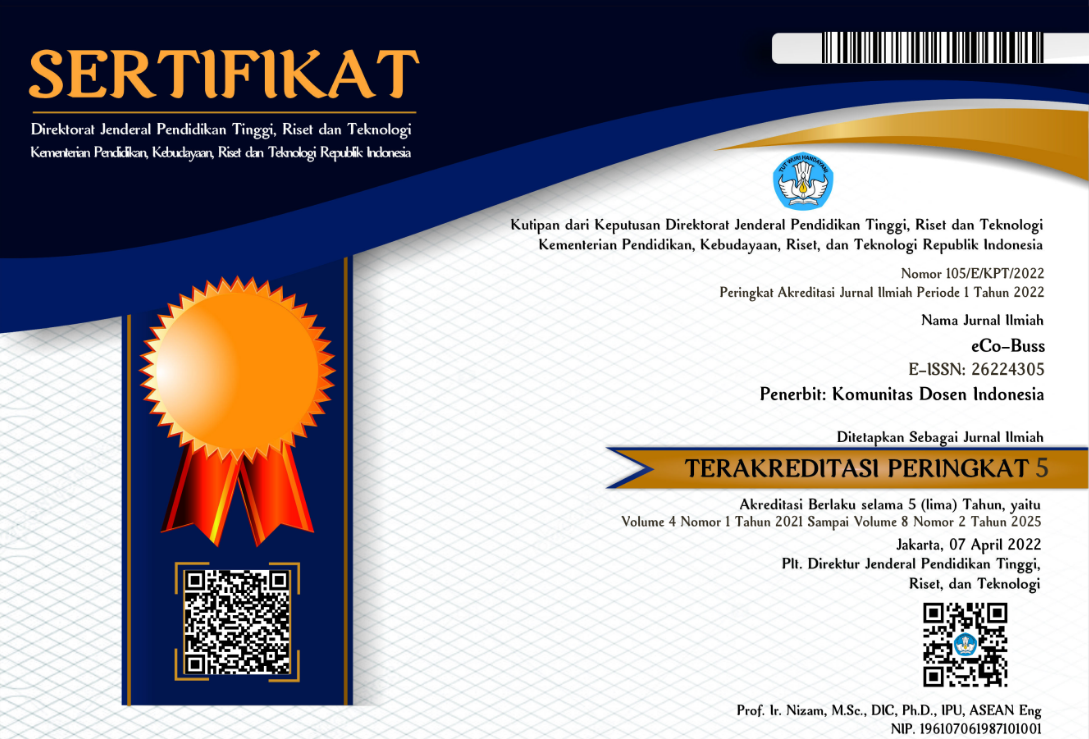The Effect of Organizational Culture and Leadership Style on Work Motivation at the Sumbawa Regency Inspectorate with Job Satisfaction as a Mediating Variable
DOI:
https://doi.org/10.32877/eb.v6i2.1011
Abstract
The objective of this study is to examine the importance of organizational culture and leadership style in relation to work motivation, with work motivation acting as a mediating variable, within the context of the Sumbawa Regency Inspectorate. The practical implications of research are significant when it comes to informing management decisions in future endeavors. From an academic perspective, research contributes to the expansion of knowledge, particularly in the realm of human resource development. The sample consisted of 118 participants selected from a population of 118 government servants. The selection of respondents was conducted using approaches that were representative of the full population. The findings of this study suggest that the impact of organizational culture on work motivation is mediated by job satisfaction, and the influence of leadership style on the work motivation of civil servants in the inspectorate of Sumbawa Regency is also mediated by job satisfaction. This implies that job satisfaction plays a significant role in establishing a connection between company culture and work motivation. Organizational culture encompasses the core principles, social norms, and operational procedures that are embraced inside an organization. The level of job motivation among employees can be influenced by their satisfaction with the prevailing corporate culture. Nevertheless, the findings indicated that the influence of organizational culture on the work motivation of civil workers within the Sumbawa Regency Inspectorate is mediated by job satisfaction.
Downloads
Downloads
Published
How to Cite
Issue
Section
License
Copyright (c) 2023 Fendy Maradita Maradi

This work is licensed under a Creative Commons Attribution-ShareAlike 4.0 International License.






 DOI :
DOI :
 Abstract views: 101
/
Abstract views: 101
/  PDF downloads: 107
PDF downloads: 107

